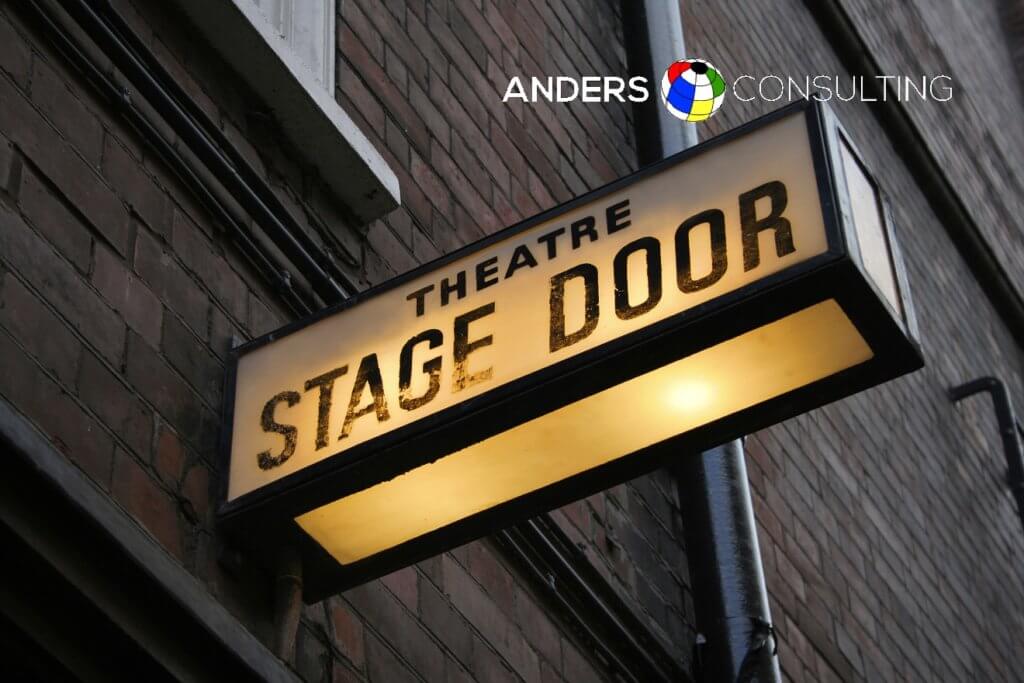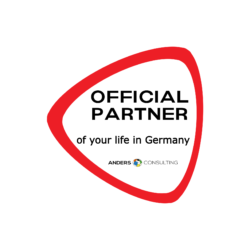Living and working in Germany as an artist. What do you have to consider?
As an artist, you have other things on your mind than work permits, visas and residence permits. Let us do the work!
This article is about the conditions under which performing artists can live and work in Germany as employees or freelancers. It is also interesting for employers and clients who want to establish fully legal contractual relationships and don’t want to experience any surprises.
Are you an artist from a third country and planning to work in Germany for an employer or as a freelance artist for a client?
There are bureaucratic hurdles, but you can master them all. Since the beginning of the year, all artists from the UK and Northern Ireland have also been affected, as the Brexit made them third-country nationals and the UK’s exit from the EU, along with Corona, has dealt a hard blow to the traditionally strong, English entertainment and creative industries and the artists affected.
First of all, it should be clear to everyone that regardless of the duration of employment or gainful activities anywhere in Germany, a work permit will always be required. This can take the form of pre-approval from the German Labor Office (“Agentur für Arbeit Zentrale Auslands- und Fachvermittlung” (ZAV)) or a visa issued by a German diplomatic mission abroad.
The ZAV takes care of the categories acting and stage, cinema/film/TV acting and production, musical theater, orchestra and musical, dance, entertainment and model/advertising characters.
Pre-consent and visa for artists
In the case of a visa, the relevant approval, i.e. the work permit, is issued by the embassy. The visa also entitles the holder to take up employment immediately after entering Germany. Freelancers are dependent on going to the embassy in the country of residence, or in their home country, because no prior approval from the ZAV can be obtained for them. If freelancers stay in Germany for less than 90 days, the visa also serves as a work permit.
Dependent employed artists in jobs subject to social security contributions need prior approval from the ZAV for stays of up to 90 days. All artists, whether freelancers or employees, need a long-term residence permit for staying 90 days or more, which you must apply for in good time at the foreigners authority responsible for your place of residence.
Freedom of movement in the EU does not mean being allowed to work everywhere
Entering Germany as a tourist, e.g. with a Schengen visa, and becoming self-employed or employed as an artist in Germany may go undetected, but it is always a violation of applicable law. This should also be clear to employers and clients, who must make sure that the artist in question has the appropriate right to work and reside.
An artist with the nationality of a third country who, for example, has a work permit and a residence title in another EU country, let’s take France as an example, may be assigned for a secondment from France to Germany, but may not be employed by a German employer or stay here as a self-employed person for gainful employment purposes without his or her own prior approval by the ZAV or a visa in Germany. The freedom of movement that all EU visas and residence permits bring with them, i.e. traveling throughout the entire EU, has nothing to do with having a carte blanche to accept engagements as an artist anywhere in Europe.
Safety and comfort for employees and employers can be gained easily
“During Corona, we supported many artists and performers who lost their jobs during the pandemic to stay in Germany, for example to find a job or to learn the German language. Some already were entitled to unemployment benefits, others were not. That was pretty tough for those affected.
Artists who come to Germany as freelancers should always keep in mind that they are not as well protected socially as employed colleagues. Especially artists and cultural workers in the fields of music, performing arts or visual arts including design are often even less well protected than “normal” self-employed people. Therefore, if you have the prospect of staying, the artist’s social insurance (“Künstlersozialkasse”) is a must!
Not all employers always take the regulations concerning employment and foreigners as seriously as they should. Freelancers and employees also often tend to be careless. This often results in constellations that can lead to administrative and even criminal offenses. If you want to prevent this, hire a professional to assist with work permits, visas and residence titles.
More far-reaching support measures for artists are still the exception rather than the rule, but if you as an employer want your artists to be able to concentrate on what they are ultimately paid for, you could also provide assistance in finding accommodation or support in settling in. Dear Cultural Workers and Artists: You’ve got a Friend in Germany!
Unfortunately, the “7 Friends” do not benefit from their privileges regarding entry and application rights
The situation is rather inconvenient for our “7 Friends”, as they are called, the countries whose nationals are allowed to enter Germany without a visa and can apply for residence permits here. They are USA, Canada, Australia, New Zealand, Republic of Korea, Japan and Israel. Since the Brexit, the United Kingdom with Northern Ireland belongs to it, too, so there are now 8 friends. But everybody continues to call them the “7 Friends.”
Whoever enters Germany with a nationality of one of the “7 Friends” may enter Germany visa-free at any time, but may not start working until he or she has received a corresponding residence permit from the Foreigners’ Registration Office. Since it can take months to get an appointment at the relevant foreigners authority after entering and registering, one cannot become gainfully employed during the waiting period. So the nationals of the 8 states also profit from going to the German embassy and getting a visa, so that they can work immediately after arrival. This is also done by the third country national, who has a residence permit for France, see above: He or shes goes to the German Embassy in France and gets the corresponding visa.
Artists are generally not rated as skilled workers
The expedited skilled worker procedure (“beschelunigtes Fachkräfteverfahren”) does not apply to artists, as they are generally not skilled workers within the meaning of the Skilled Worker Immigration Act (“Fachkräfteeinwanderungsgesetz”) whose professional qualifications are or can be recognized in Germany.
However, if an artist has studied and has finished the studies with a recognized degree, e.g. dramatics or event management, and is employed under an employment contract in a position to which the degree qualifies him or her, the expedited skilled worker procedure is certainly applicable. In this case, the focus is not on the artistic activity, but on the qualification and employment aspect. For this purpose, one can also consult the corresponding database anabin, in which all recognized universities and study programs are listed.
Cross-border workers, tours and guest performances
In response to our inquiry, the ZAV reported that there are repeated attempts not to clearly name the client or employer in employment contracts or orders in order to act more “flexibly”. Tour organizers and guest performance agencies should try to create clear conditions here, because violations can be punished and ultimately the artists also bear the damage if the engagement has to be canceled and they have to leave the country.
If third-country nationals employed in Germany are sent to other EU countries for tours or guest performances, i.e. are assigned for a secondment abroad, all relevant regulations for assigments abroad apply, e.g. the obligation to obtain an A1 certificate, the favorability principle and the obligation to only observe instructions given by the German employer. For assignments to non-EU countries, the rules for work permits, visas and residence titles must be observed in addition accodring to the regulation in place in the particular Non-EU country.
Required documents, papers and costs
As a rule, the minimum documents required from artists are:
– Copy of passport
– Employment contract (Attention: Who has which role: employer, client…)
– Power of attorney from the employer
ZAV is very painstaking, but does not act extremely restrictive, i.e. who has an artist status wanted by Germany and if the contract meets German standards, there are few problems with the pre-approval.
If you want to employ freelance or salaried artists from third countries and want Anders Consulting Relocation to take care of work permits, visas and residence titles, you should expect the following costs and fees:
Up to 90 days:
Freelancer “7 Friends”: Embassy for visa 100,00 Euro
Freelancers other third countries: Embassy for visa 100,00 Euro
Workers “7 Friends”: Pre-consent 200,00 Euro + Embassy for visa 100,00 Euro = 300,00 Euro
Workers other third countries: Preo-consent 200,00 Euro + Embassy for visa 100,00 Euro = 300,00 Euro
Over 90 days:
Freelancer “7 Friends”: Embassy for visa 100,00 Euro + long term-residence permit* 390,00 Euro = 490,00 Euro
Freelancer other third countries: Embassy for visa 100,00 Euro + long-term residence permit* 390,00 Euro = 490,00 Euro
Workers “7 Friends”: Pre-consent 200,00 Euro + embassy for visa 100,00 Euro + long-term residence permit* 390,00 Euro = 690,00 Euro
Workers other third countries: Pre-concent 200,00 Euro + Embassy for visa 100,00 Euro + long term residence permit* 390,00 Euro = 690,00 Euro
*For a single person who is already registered. Registration 120,00 Euro, all prices plus VAT (“Umsazusteuer”)
Anders Consulting does not offer legal services within the scope of its activities. Errors and omissions excepted. Status: Summer 2021
Foto: AdobeStock_2761731



